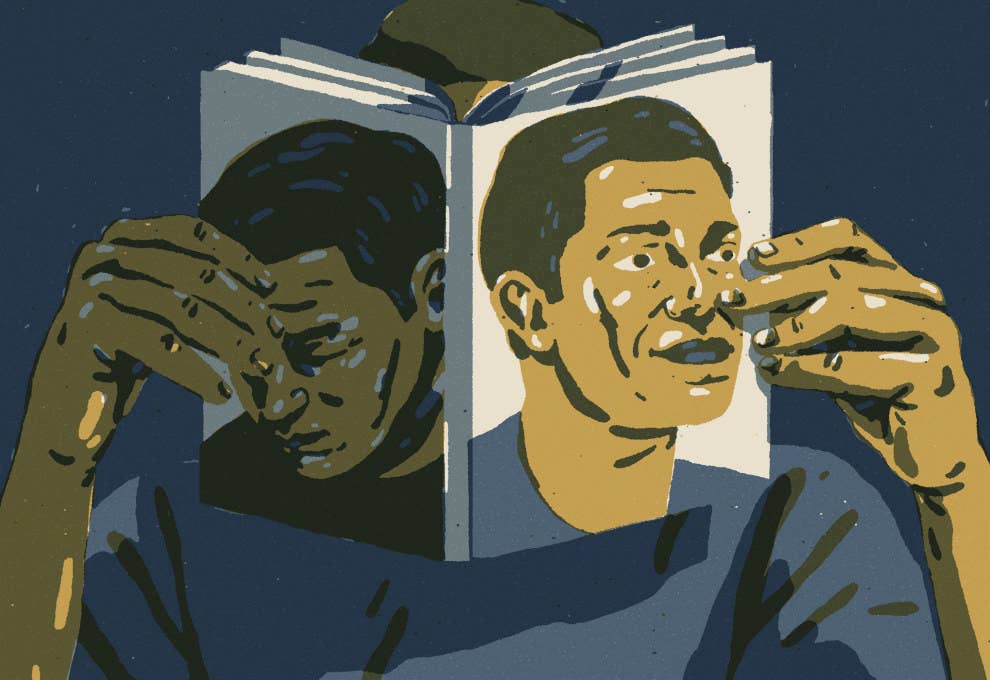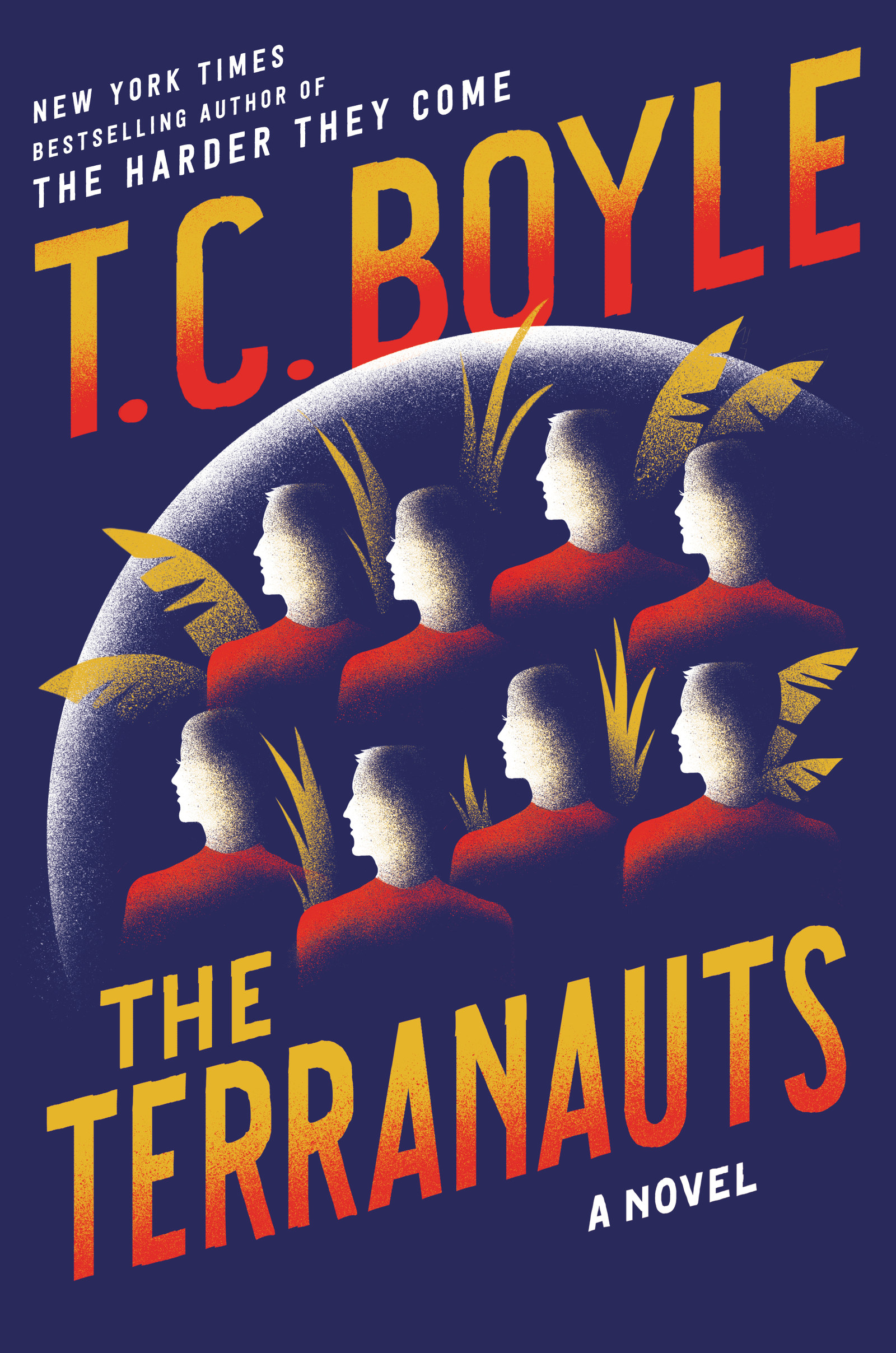
Death is coming, not just for the individual but for the species too, and I’ve reached an age where I can see my own death as starkly as the shadow of the .357 Magnum pistol I like to keep coiled on my desk as a reminder of the occasion. Memento mori, oh yes, indeed. Not with a whimper but a bang. Do not go gentle. Two years ago, my best friend died unexpectedly (or, rather, expectedly, but in an unexpected way). Lester, the name I’ve anointed him with in my fiction, was with me from elementary school on, and because we drank and drugged together from the earliest age, he was the one I poured my soul out to more than any other, more than any girlfriend, more than my wife, more even than any of the others of our hermetic brotherhood. And he poured equally into me — or at least that was what I thought until he died, until the way he died, tight-lipped and unreachable. Maybe I’d deluded myself all along, maybe it had been less than mutual and more about me claiming the starring role in the relationship all along. Maybe it still is. Because I’m here and he’s not.
We got drunk. We got high. We drove like suicides.
Lester was 10 months younger than me. He’d skipped one of the elementary grades in order to enter our year because he was a polymath and a genius, IQ 154. He could ace any test without trying, equally adept verbally and in math and science (which separated us scholastically: He was in the first-tier classes, I in the second, crippled by my antipathy for such arcana as chemistry and physics). No matter. We were equals in cracking wise, in the incipient art of hipness, which is a thing you don’t learn in a classroom. We fed on and off each other. We got drunk. We got high. We drove like suicides. And if Lester went further than any of us, especially in the first two categories, that was his thing, that was his legend, and soul-baring or no, none of us was about to displace our armor of hip to ask why. He felt the weight of the mechanistic universe in the way we all do, and now, now that it’s too late, I wonder if there could ever have been a way to ease that burden short of personally discovering extraterrestrial life. Together. On a scintillant day. In a place far from this one.
I was on the beach in Puerto Escondido, lithe and tanned, drinking and drugging with Lester sometime in the 1990s. We were there in the company of two other members of the brotherhood, with the twin intentions of bodysurfing and kicking back. Three of us stayed in a funky rental on the beach; Lester, whose tastes tended toward refinement, as befitted the bon vivant he’d become, chose the hotel at the far end of the beach. Not a problem: We hung at the hotel and we hung at our place and in town too. But the wonderful thing about the hotel was the admonition posted outside every room regarding the “bad element” that preyed upon tourists after dark on that very beach. How we howled over that one. And one night, late, in our cups, Lester and I made our way back along the strand, defiant of bad elements everywhere. Why? Because Lester — he was 5-foot-11 and carrying the hammered musculature he inherited from his father — had worked himself into a violent rage over the very notion that anyone extant could prevent him from doing anything he chose. Ever. He roared as he strode along, bellowing out a challenge to any element, bad or otherwise, that would dare presume to interfere with him. I wasn’t so confident (or fearless or foolhardy) but I watched the shadowy forms of whoever else was out there melt trembling into the obscurity of the very densest shadows. We survived. We thrived. Joked about it. Maybe even did another shot or two in commemoration. And I, always the manipulator of experience, used the occasion as the foundation for “Mexico,” one of my stories featuring Lester.
How did he feel about that, about being inserted into my fiction, revealed as a character who was both recognizably himself and an avatar at the same time? I don’t know. And that’s painful too. In his later years, inspired by me, he became a writer himself, and he always joked that in the biographical note on the dust jacket he would claim he’d begun his career as a fictional character. All right. But then I wrote a story set when we were in our twenties, when we were all-powerful in the world and all-stoned, except that I wasn’t in this story, only he was. The story is called “All the Wrecks I’ve Crawled Out Of,” and it takes a comedic/tragic look at the innumerable flaming disasters Lester survived, both actual and metaphorical. For all its bravado and its depiction of Lester as a force of superhuman capacity akin to the persona Hunter S. Thompson adopted in his books, the story revolves around a painful affaire de coeur, which serves to ground the legend in pathos. I saw the story as sympathetic, as a story, as a well-wrought reflection of my art and my view. Lester, with wryness in his voice and maybe something else too, something I might have missed, said, “Jesus, T., thanks a lot. I always looked back on that time as a happy one; now I realize how fucking miserable I was.”
He was witty. I was witty. We were all of us, the core group, witty.
He was witty. I was witty. We were all of us, the core group, witty. That was what defined and distinguished us, what separated us from the rest of this uncontainable, dangerous, ultimately unhip and determinedly unwitty world. Once, during the time he was the Quaalude King of Lake Tahoe, Lester came to visit me where I was renting a house on the Russian River for the summer and we took off on a three-day bender. On the last day, wrecked, we were out in the canoe, splashing around, swimming, shouting, laughing and generally having the kind of magical time only drugs and sun and brotherhood can bring, when we decided to shoot the rapids (“Why the fuck not?”) and plunge over a little four- or five-foot dam. Okay. Great. But midway across the dam we got stuck. Nothing dangerous, nothing radical — just, well, funny. There he was, Lester, weighing down the front of the canoe as the water seethed over his shoulders; there I was, seesawed up in back. Lester’s comment: “I swear to you I will never again in my life go beyond hailing distance of a cocktail waitress.”
Another time (I could write of a thousand times, all them imprinted on my soul), he came down from San Francisco to visit me in L.A., where I was then living. He was just becoming interested in a serious way about writing and was curious about how I, his closest friend, went about the business of it. Sometime during that week, a French journalist came to interview me for one of the Parisian newspapers and Lester asked if he could sit in on the interview. Sure he could, of course he could, no problem. The journalist was brilliant, prepared in a way that few make the effort to be, and we were deep into a discussion of my oeuvre, when he began listing my major themes, as he saw them, from the search for the father to racism to nature and the environment. Lester, who’d been listening silently to this point, cleared his throat and we both looked to him. “Bullshit,” he said. “T. has only two themes: shit and death.” Take a guess as to the headline of the story the paper ultimately ran. Yes: "T.C. Boyle: La Merde et la Mort."
I used his life and now I’m using his death.
Mort. Le roi e mort, vive le roi! Lester is dead. I used his life and now I’m using his death (see my new story, “Subtract One Death,” which revolves around his memorial). Is this permissible? Forgivable? I joke about it, of course I do: What else is there? I say to my friends that the true test of our friendship is to stay close, to forgive, to love, when all the while you know I will betray your deepest secrets and desires in my next novel. Lester was far bigger than any page could hope to contain. He exists in memory, he exists in print, but it doesn’t matter beyond this: His absence tears a hole out of my life.
The news of his death came to me in a long-distance telephone call. I was on the road, prosecuting the eternal book tour. One of our brothers called me with the news and I took it in the alien space of a hotel room, staring out from the sixth floor on a city that vanished in that instant beneath the unbearable weight of its orange-tile roofs and smog-blighted palms. A few days later I was on an airplane, heading to Austin, and it was then, with the aid of two or three of those little plastic bottles of rum, that I began to come to terms with his death. I was in the back of the plane, and, small miracle, there was no one seated beside me. I stared out the window at the high expanding sunstruck clouds and talked with him, actually spoke aloud (and for once I was thankful of the muted roar of the engines which made this private conversation inaudible to anyone but Lester and me). I wanted to say goodbye, wanted an explanation, a touch, a breath, a joke. What he’d done is this: He’d told none of us he was dying, hiding his illness because it isn’t hip to be fatally ill, isn’t hip to die, and you can’t disarm fatality with a quip. There are no wise guys in death. Only dead ones.

T.C. Boyle has published sixteen novels with The Terranauts having just been released from Ecco, and ten volumes of short stories, including the PEN/Faulkner Award-winning World’s End; The Tortilla Curtain, which was awarded France’s prestigious Prix Médici étranger; and the New York Times bestseller The Harder They Come. He lives in Santa Barbara, California.
To learn more about The Terranauts, click here.
Want more of the best in cultural criticism, literary arts, and personal essays? Sign up for BuzzFeed Reader’s newsletter!
If you can't see the signup box above, just go here to sign up for BuzzFeed Reader's newsletter!
